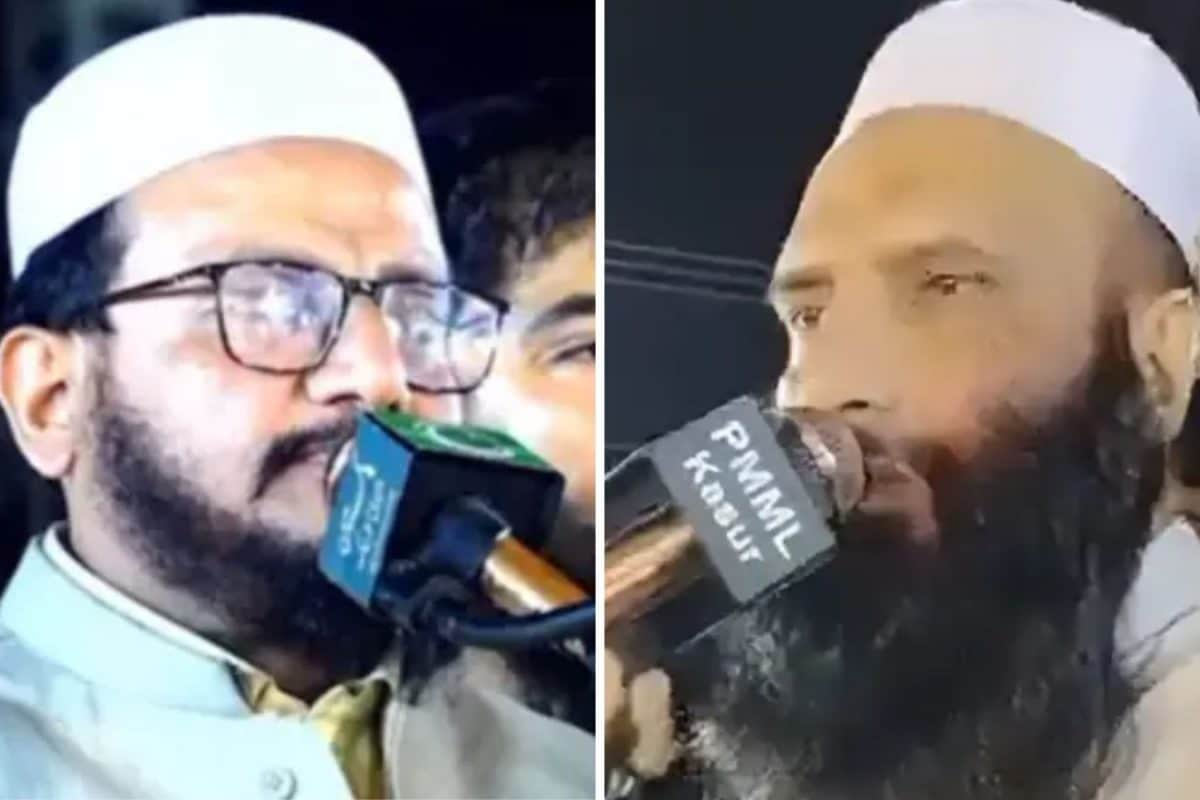

A recent rally in Pakistan has ignited a firestorm of controversy, exposing the deep-seated nexus between Pakistani politicians and designated terrorist groups. The event, organized by the Pakistan Markazi Muslim League (PMML) to commemorate Youm-e-Takbeer, Pakistan's annual celebration of its nuclear tests, featured inflammatory anti-India rhetoric and brought together key figures wanted for terrorism, including Lashkar-e-Taiba (LeT) commander Saifullah Kasuri, the alleged mastermind behind the deadly Pahalgam terror attack.
Kasuri, designated by India as the key plotter behind the April 22 Pahalgam attack that killed 26 people, mostly Hindu men, appeared at the PMML rally in Kasur, Punjab province. Addressing the crowd, he brazenly claimed that he has become "more famous" since being accused of orchestrating the brutal assault on the scenic Baisaran meadow. "I was blamed as being the mastermind of the Pahalgam terror attack, now my name is famous in the entire world," Kasuri boasted.
The presence of Pakistani ministers alongside known terrorists has drawn sharp criticism and raised serious questions about Pakistan's commitment to combating terrorism. Close aides of Pakistani Prime Minister Shehbaz Sharif and PML-N leader Maryam Nawaz, including Food Minister Malik Rasheed Ahmad Khan and Punjab Assembly Speaker Malik Muhammad Ahmad Khan, were purportedly seen sitting beside LeT commanders Saifullah Kasuri, Talha Saeed, son of Hafiz Saeed, and Amir Hamza. Rather than distancing themselves from these extremist figures, the ministers were seen greeting and welcoming them onto the stage, interacting with them, and delivering speeches that glorified their role.
The speeches at the rally were filled with anti-India sentiments and open glorification of terrorism. Kasuri himself hailed terrorists killed during India's Operation Sindoor as "martyrs." Talha Saeed, son of LeT founder Hafiz Saeed and a designated terrorist by India, delivered a fiery address filled with jihadist slogans. Minister Malik Rasheed openly declared that "24 crore Pakistanis are today represented by men like Hafiz Saeed and Saifullah Kasuri," equating terror figures with national identity. He even announced that the Shehbaz Sharif government would offer a job to the brother of Mudasir, a LeT commander killed in India's airstrike on the group's Muridke headquarters.
Kasuri's reappearance at the rally and his inflammatory statements have sparked outrage in India. He was also seen surrounded by Pakistani security forces, fellow terrorist commanders, and officials of Pakistan's intelligence agency, ISI, during the rally. Kasuri also referenced the upcoming elections and asked the people of Kasur (his hometown) if they'd support him running against Modi in the next election and styled himself as a thorn in India's side. He stated that India had tried a lot to isolate Pakistan and specific individuals, but now it was they who stood isolated.
This event is the latest in a series of incidents that expose Pakistan's continued support for terrorist groups. The PMML has ramped up its anti-India rhetoric in recent weeks, staging protests across major Pakistani cities, calling for Hafiz Saeed's release, and accusing India of "water aggression" for suspending the Indus Waters Treaty. Despite LeT remaining banned both internationally and within Pakistan, groups like the PMML have enabled its leadership to retain political and ideological relevance.
The presence of Pakistani ministers alongside designated terrorists is a clear indication of Pakistan's double-speak on terrorism. While Pakistan continues to deny any links to terrorism or of sheltering terrorists, the Kasur event provides visual proof of Pakistan's unholy alliance with terror outfits. It undermines Pakistan's claims of having taken action against terrorists and exposes its continued use of terrorism as a tool of state policy.
The international community has taken note of these developments, and there are growing calls for Pakistan to take concrete action against terrorist groups operating on its soil. The incident has further strained relations between India and Pakistan, with India vowing to continue to expose Pakistan's support for terrorism on international platforms.